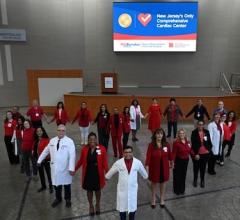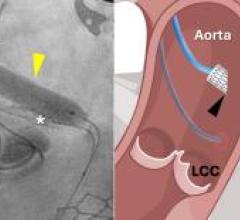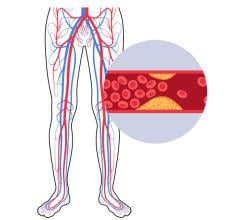
May 21, 2009 - Boston Scientific Corp. this week announced results from an analysis of economic and quality of life outcomes, based on one-year data from its landmark SYNTAX trial.
The results found that percutaneous coronary intervention (PCI) using the TAXUS Express2 Paclitaxel-Eluting Coronary Stent System was consistently associated with fewer patient hospital days during the first year after treatment compared to coronary artery bypass graft (CABG) surgery. Total medical costs at one year were also lower with PCI. Analysis of the data was presented by Ben van Hout, Ph.D., of the University of Utrecht, The Netherlands, at the annual EuroPCR Scientific Program in Barcelona.
“This analysis demonstrates that although hospitalization patterns vary by country, PCI patients consistently benefit from shorter hospital stays during the first year following treatment, as compared to CABG patients,” said Dr. van Hout. “This analysis will be especially helpful to physicians and hospital administrators as they consider the most cost-effective course of treatment for these complex patients.”
The SYNTAX economic analysis compared quality of life outcomes using standardized health outcome measures and resource utilization associated with PCI and CABG surgery in patients in 11 European countries and the U.S. who qualified for one or the other revascularization option. The results indicated a short-term benefit for PCI versus CABG surgery, with no significant difference at one year, but with a gain in quality adjusted life years (QALY) of 0.02 in favor of PCI.
The analysis also included a detailed calculation of total medical costs at one year for all patients treated in the U.K., the country with the largest cohort of patients. Total costs included the initial procedure, all hospitalizations, repeat procedures and medication. Although initial procedure costs were similar (4,201 pounds Sterling for PCI vs. 4,246 pounds Sterling for CABG), total medical costs for PCI were 25 percent lower than CABG at one year (8,295 pounds Sterling PCI vs. 11,101 pounds Sterling CABG).
Results further showed that although the average length of hospital stay varied by country, CABG patients were hospitalized on average an additional 7.8 days compared to PCI patients (13.7 vs. 5.9 days, including pre- and post-procedure).
SYNTAX is the first randomized, controlled clinical trial to compare PCI using the TAXUS Express2 to CABG in patients with left main disease and/or significant narrowing of all three coronary arteries (three-vessel disease). These complex patients are traditionally treated with CABG surgery and have been excluded from most prior drug-eluting stent clinical trials. The SYNTAX trial provides important data related to the treatment of these complex patients and should help physicians make more informed treatment decisions.
It has been previously reported that one-year SYNTAX data demonstrated comparable safety for the two treatment groups, with no overall statistically significant differences between PCI and CABG surgery in rates of death or myocardial infarction, although there were more strokes in patients treated with CABG surgery. The rate of repeat revascularization was higher in the PCI group, although most procedures in the PCI group were repeat PCI, with only a small percentage requiring CABG surgery. However, because of the increased need for repeat procedures, the overall 12-month MACCE (major adverse cardiovascular or cerebrovascular event rate, including all-cause death, stroke, MI and repeat revascularization) was higher for PCI.
The safety and effectiveness of the TAXUS Express2 Stent System have not been established in patients with left main or three-vessel disease.
For more information: www.bostonscientific.com


 February 06, 2026
February 06, 2026 









